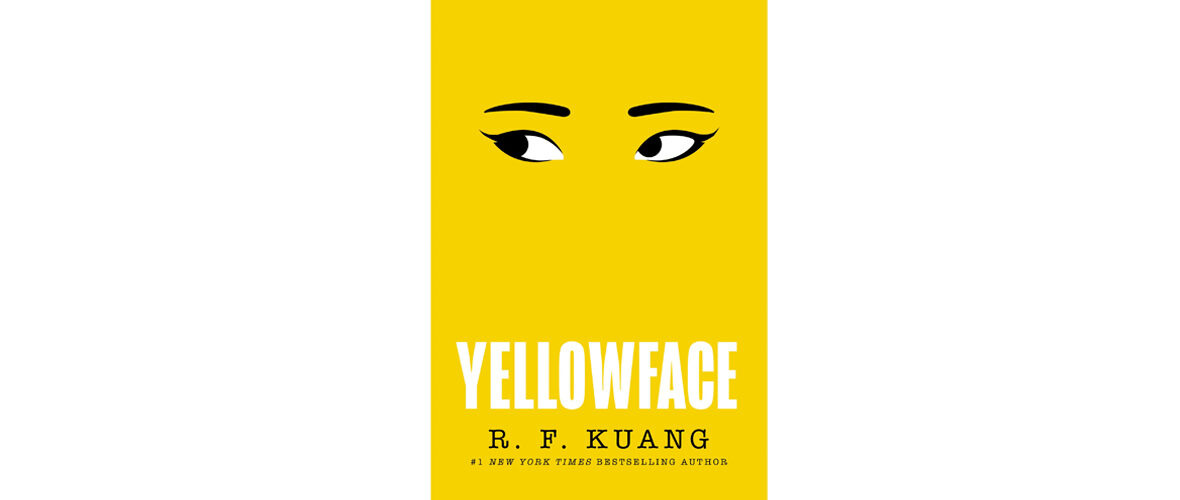In a world where cultural representation is increasingly scrutinized, “Yellowface” emerges as a provocative narrative that challenges our understanding of identity, appropriation, and the nuances of storytelling. The novel, penned by the gifted author R.F. Kuang, delves deep into the complexities of race, privilege, and the insidious nature of ambition. It performs a delicate dance around the notion of authenticity in literature, compelling readers to reflect on their own biases and assumptions.
At its core, “Yellowface” tells the story of a white author who, after the sudden death of her Asian American friend and fellow writer, appropriates her unfinished manuscript. This controversial premise sets the stage for a multifaceted exploration of cultural theft and the moral quagmire that often pervades the literary world. Not only does this narrative serve as a gripping plot, but it simultaneously illuminates a larger societal concern—how narratives are crafted, who is deemed worthy to tell them, and the darker impulses that drive artistic ambition.
One of the striking observations that can be made through Kuang’s vivid prose is how the protagonist, June Hayward, grapples with her internal contradictions. Her initial thrill in seizing the opportunity to claim her deceased friend’s work quickly transforms into a tangled web of guilt, anxiety, and ultimately, a relentless drive for success. This moral ambivalence reflects a broader cultural phenomenon: the obsession with achievement in a hyper-competitive society. Readers are left to question whether June’s actions are a reflection of personal ambition, or a byproduct of a societal framework that rewards privilege and replicates systemic injustices.
Kuang expertly incorporates the artifice of the publishing industry as a backdrop, creating a microcosm that mirrors larger societal dynamics. The book’s exploration of the publishing world’s gatekeeping mechanisms reveals profound truths about who gets to tell stories and who benefits from them. There is a palpable tension as June navigates this landscape, forging her identity both as a writer and as a person. The narrative hints at a broader commentary: an industry that often marginalizes authentic voices in favor of those that align more closely with established norms and expectations.
One fundamentally fascinating aspect of “Yellowface” is how it taps into the literary world’s obsession with authenticity. The allure of an “authentic” voice is palpable, yet what constitutes authenticity when layered with privilege and appropriation? The paradox lies in the fact that the very stories that are often deemed “authentic” and celebrated can sometimes arise from dubious origins. This investigation into authenticity compels readers to re-evaluate their own consumption of literature—what stories resonate with them, and why? It beckons a dialogue about the ways in which culture shapes narratives and the implications of consuming stories crafted by individuals outside those lived experiences.
A particularly haunting thread throughout the novel is the concept of invisibility. June’s appropriation of her friend’s voice raises pivotal questions surrounding visibility in the literary landscape, especially for marginalized authors. As she crafts a new persona—one that aligns with the stereotypical expectations of her friend’s background—the narrative deftly unveils the layers of her internal struggle against a society that often prizes superficial representations over substantive, lived experience. This aspect of the storyline serves as a potent reminder of the importance of true representation, making it hard for readers to ignore the ethical implications of June’s decisions.
As the narrative unfolds, the character of June becomes a mirror reflecting societal flaws and inherent contradictions. Kuang elucidates the notion of desirability—how society often equates success with an ability to navigate and manipulate identity for personal gain. The protagonist’s journey becomes a cautionary tale that speaks to the broader consequences of actions motivated by self-interest. The literary world, much like society, is prone to valuing stories that come from a place of privilege, obscuring those narratives that emanate from authenticity and struggle.
Moreover, Kuang’s writing is laced with sharp wit and incisive commentary, inviting readers to engage with these themes on multiple levels. The juxtaposition of humor and incisive critique creates a unique lens through which to view contemporary issues surrounding race and identity. Readers are granted moments of levity amidst the gravity of the subject matter, a balance that enhances the narrative’s overall impact while ensuring that the core themes resonate profoundly.
In conclusion, “Yellowface” transcends the boundaries of a conventional literary work. It challenges readers to confront their own preconceptions regarding cultural appropriation, ambition, and the narratives we elevate. R.F. Kuang pens a compelling story that serves as both a gripping tale and an intellectual exploration of vital societal themes. It implores readers to dismantle the constructs of identity they have unconsciously subscribed to, inviting them to engage in the ongoing dialogue around representation and authenticity. By so doing, “Yellowface” becomes not just a book to be read, but a catalyst for deeper introspection and critical thought—a resonating echo in the cacophony of contemporary literature.
